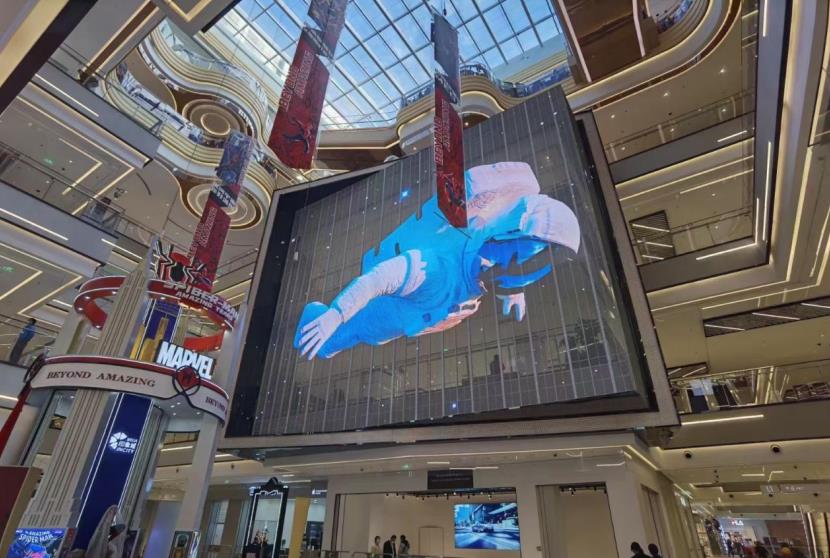Amid the accelerated digital transformation of physical retail spaces, mall atriums—traditional hubs for customer flow—are undergoing revolutionary changes in display formats. As the new visual focal points of these spaces, indoor LED screens are gradually replacing traditional static exhibitions with their flexible presentation methods and strong content-carrying capacity, becoming vital mediums for brand-consumer dialogue. This transformation not only restructures the visual hierarchy of commercial spaces but also significantly enhances customer dwell time and engagement through dynamic, immersive information delivery.

Wenzhou Impression City
Multi-dimensional Value Creation System
From a spatial operations perspective, indoor LED screens achieve breakthroughs in three key aspects:
l Brand Image Enhancement: High-definition dynamic visuals combined with surround sound create memorable environmental atmospheres, enabling three-dimensional brand presentations.
l Operational Flexibility: Real-time content updates and remote management allow malls to adjust display strategies based on time slots, seasons, and other variables.
l Architectural Integration: Modular splicing technology enables custom-shaped screens that seamlessly fit building structures, blending technological sophistication with artistic design in commercial spaces.
This dual-functional medium—both practical and aesthetic—is redefining efficiency standards for commercial displays.
Technological Pillar of the Experience Economy
As consumer demand for interactive experiences grows, LED screens have evolved from one-way communication tools to two-way engagement platforms. Modern display technologies paired with smart sensor systems can track audience behavior and deliver responsive content, creating a complete "view-participate-share" experience loop. This transformation turns mall atriums from mere passageways into social and entertainment hubs, offering brands deeper connections with target audiences.
Future Directions for Indoor LED Solutions
Innovations will focus on three dimensions:
l Display Technology: Pursuing higher resolution and more natural visual effects.
l Interaction: Exploring contactless controls and multi-user parallel response systems.
l Content Ecosystem: Developing exclusive digital assets tailored for commercial scenarios.
These advancements will further solidify LED screens as "digital shop windows" propelling physical retail into a new era of spatial media evolution.